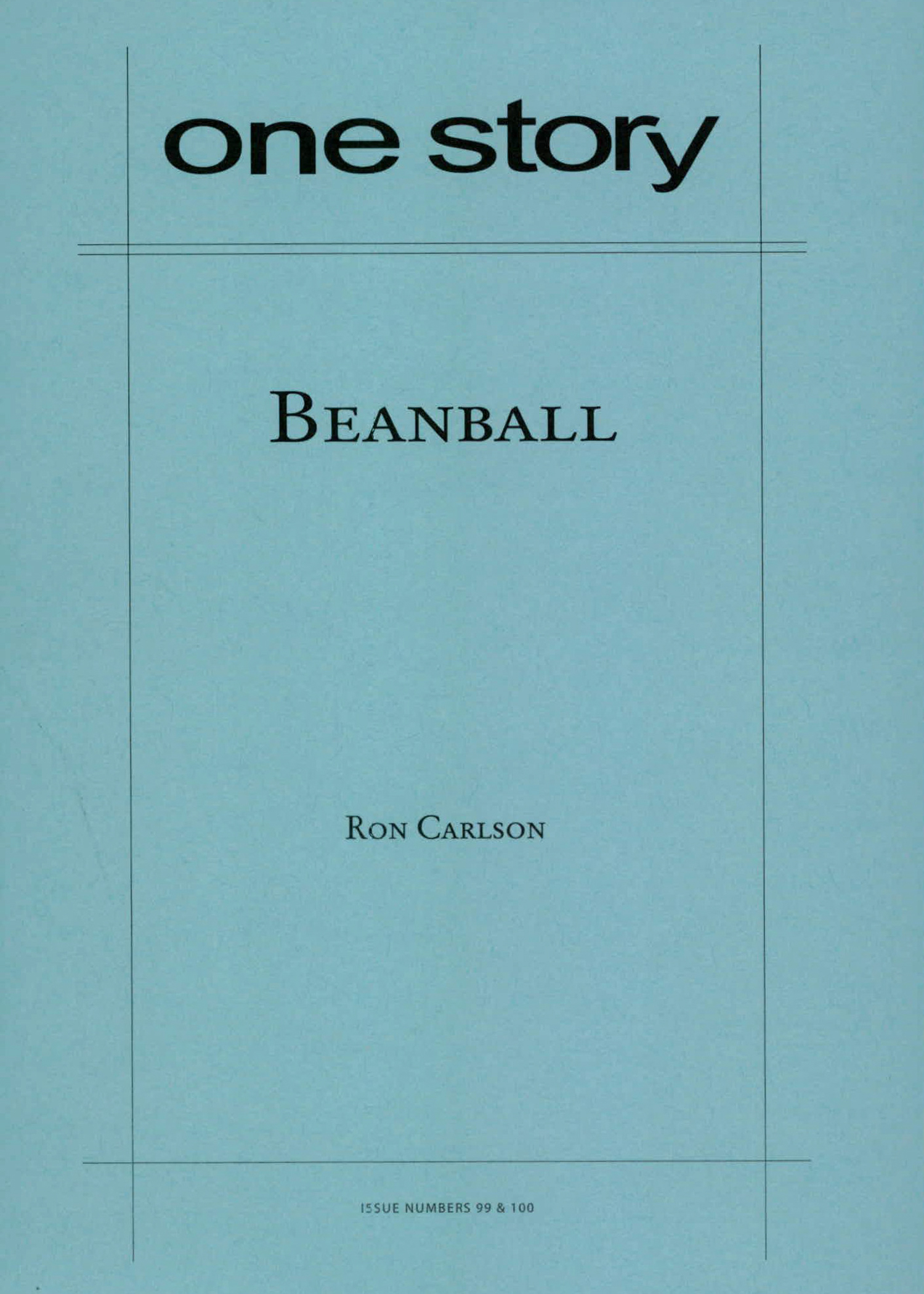
Beanball
$2.50
Sold out
Excerpt
Oh, this was very good: the road had become stiff ruts now, dried mud tracks that pulled Driscoll’s Volkswagen right and left, and he grabbed the wheel with both hands, not slowing down as he was jolted around, a grin, almost the old grin, on his face. The bladed road simply ceased and now he was getting close. That there were still these places revived Driscoll, rinsed the eight hundred miles from Houston from his view, and sat him forward. Then, still traveling at twenty miles per hour, his wheels took different tracks and the little car crabbed sideways, jolted suddenly up, and into the bush. Driscoll himself swung and rapped his forehead against the top of the windshield, as he had done a dozen times in the four years he’d been in Central America, and sat back, stopped. He turned off the motor and got out. He already knew the damage: front bumper, trunk lid, compressed suitcase.
Ron Carlson
Ron Carlson is the author of nine books of fiction, most recently the novel Five Skies from Viking. He directs the graduate program in fiction at UC Irvine.
Q&A by Hannah Tinti
- HT: Where did the idea for this story come from?
- RC: I’ve written four or five stories that have baseball as their world, and in each story life crosses into the game in some way, I see now. It is a game, but real things happen in that game. I remember the idea of some beanball intrigue years ago and I made a note in my book about a story I was going to call “Chin Music” which is often a term for an inside pitch. I kept it around until I knew more about the narrator and his injury and then I just went in. It went much further than I had originally planned.
- HT: What was the most challenging aspect of writing this story?
- RC: When I saw that I looked up when I was about a third of the way in and I saw it was going to be more involved than I had imagined, something which always happens, I just settled down and let the story grow. It was going to have to be longer to serve all the parts.
- HT: The technical language of baseball in this story is right on target. Have you ever played the game yourself?
- RC: Yes, I played from a kid, all kinds of baseball from sandlot to high school. I played at some point every position, and then in my seniority settled on second base from where I could see what was transpiring. I bat right and throw right.
- HT: Have you ever witnessed a ‘beanball’?
- RC: I’ve seen a lot of batters struck by pitches. It’s part of the game. I’ve never seen anyone intentionally hit someone, I don’t think. Whenever they eject a pitcher in the majors for throwing inside, I’m surprised; it seems like an accident to me. There must be more politics on the field than I can see. When I was nine, the first time I batted in little league in Salt Lake City, I was struck in the head and went down. I don’t know if that colors the story or not. I still remember the name of the pitcher and how dizzy I was standing on first base with chalk (from the baseline) on my face.
- HT: The build up of Driscoll’s character is so layered; it’s like he’s on a slow burn. When he killed the commander, I completely bought it. Did it ever surprise you that he had it in him?
- RC: That is exactly my response. I was surprised by that action, but I believed it, and it immediately changed my sense of the rest of the story.
- HT: The length of this story makes it feel like a novel. Ever think it was going that way, as you were writing? Is it difficult to keep the tight language of a short story when entering a longer form?
- RC: This is a story which has enough to be longer, but I decided when I had a draft to make it as tight as I could. I’ve had this experience with other stories. I wanted the compression and density here.
- HT: Who’s your favorite baseball team?
- RC: I grew up in Salt Lake and we had the Bees from triple A and I loved that old Derks Field which has been renamed, and the team has had many names but now again is called the Bees. As a kid growing up in a town far from the majors, you know the Yankees and my first mitt was embossed with Enos Slaugher’s autograph. I followed Hank Bauer who was number 9 and I always tried to get number 9 on the teams for which I played.
- HT: How long did it take you to complete this story?
- RC: I’m not really sure. I wrote in it and on it for longer than I could guess, and then I finished it in a month last fall.
- HT: What is the best bit of advice about writing you have ever received?
- RC: Go with your quirks.
- HT: What are you working on now?
- RC: I’m rewriting a short novel set in the Wind River Mountains of Wyoming.